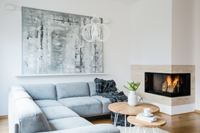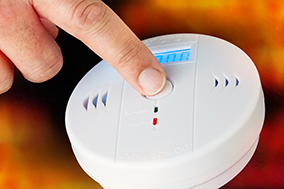
Remember the last time you walked through a furniture showroom? You probably noticed that the sofa, chairs, tables and other furnishings were arranged – or staged – to make them look more appealing. You might have seen an attractive lamp on a sofa end table, or an appetizing bowl of fruit on a dining room buffet.
When preparing your home for sale, you should do much the same thing. Stage each room to make it look its best. Studies prove this will help sell your home faster and for a better price.
Here are some simple, affordable staging tips:
- Make each room look as spacious as possible. This may mean putting some items, and even some furniture, into storage.
- Remove unnecessary items from countertops, tables and shelves.
- Keep decorative objects on shelves, tables and even sofas, in odd number groupings. According to Barb Schwartz, the originator of staging, this combination works best. So, put three pillows on a sofa, not two or four.
- Make an older-looking piece of furniture look quaint and stylish by adding a throw cover.
- Add life and good looks to just about any living space by adding flowers or a flowering plant.
- Have the table set with your best china. It makes the buyer want to move in and sit down for dinner!
- Consider replacing the sink, faucets and toilet to make an older bathroom look much better. It’s relatively quick and inexpensive.
Professional stagers look at your home through the eyes of the buyer. Do the same and you’ll be able to see what changes need to be made.
